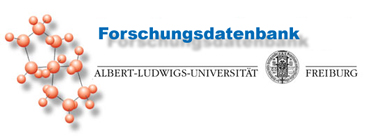| [Zurück zum Forschungsbericht] |
 |

Understanding the neural basis of attention bias modification for food avoidance in Anorexia Nervosa (AN)
Projektbeschreibung:Anorexia Nervosa (AN) is a severe mental disorder characterized by fear of food and avoidance of eating. It has been proposed that brain-directed training (e.g. cognitive bias modification) has the potential to alter underlying cognitive and neural responses to disorder-relevant cues (e.g. food), thereby facilitating symptom reduction. Accordingly, we are conducting a randomized clinical trial (RCT) of attention bias modification (ABM) aimed at reducing food avoidance in people with AN. In this RCT, participants are randomized to ABM with food cues (active condition) or to a control condition without disorder-relevant cues. Behavioural outcome measures include attention bias for food, food anxiety and food intake pre and post training. However, the neural underpinnings of change associated with bias modification trainings are not known. Such data would increase understanding of the neural basis of food avoidance in AN, identify brain changes associated with symptom reduction and would improve our understanding of the cognitive processes involved in ABM. Therefore, we propose to add a functional neuroimaging (fMRI) study to our ongoing investigation of attention bias modification in AN.Projektlaufzeit:
Ansprechpartner: Werthmann J
Email: Werthmann@psychologie.uni-freiburg.de
Projektbeginn: 15.07.2017Projektleitung:
Projektende: 15.07.2019
Werthmann JKooperationspartner
Albert-Ludwigs-Universität Freiburg
Institut für Psychologie
Abteilung für Klinische Psychologie und Psychotherapie
Engelbergerstr. 41
79085 Freiburg i. Br.
Telefon: ++49-(0)761/203-3013
Fax: ++49-(0)761/203-3022
http://www.psychologie.uni-freiburg.de/abteilungen/Klinische.Psychologie
King's College London, UKFinanzierung:
- Brain and Behaviour Foundation, Foerderverein
Schlagworte:
- Clinical Psychology, Neuroscience, Eating Disorders, Anorexia Nervosa, Attention bias, Eating behaviour
Aktueller Forschungsbericht